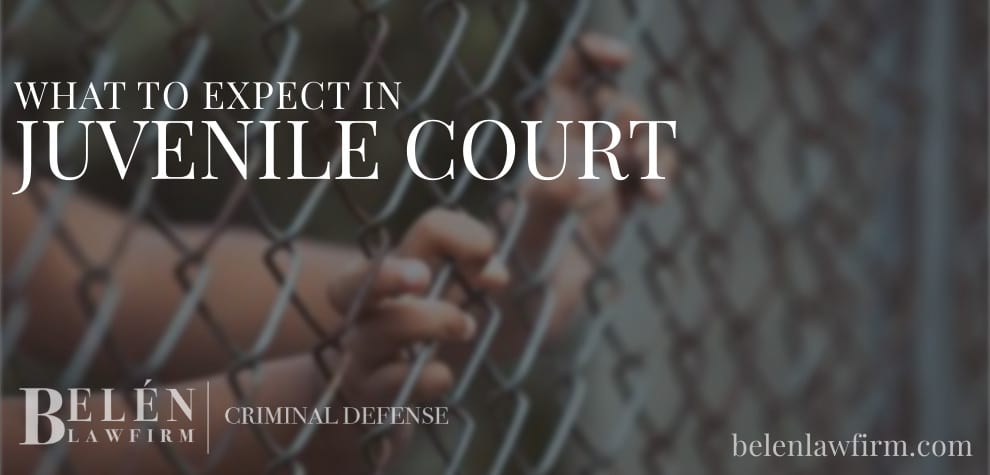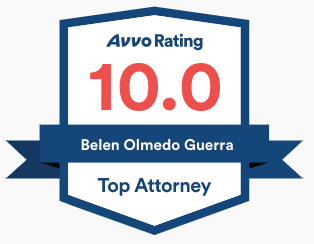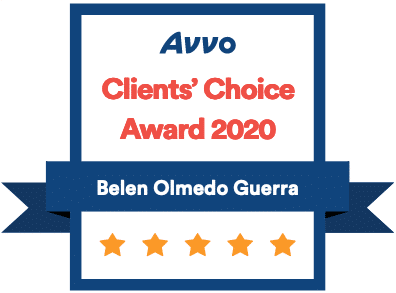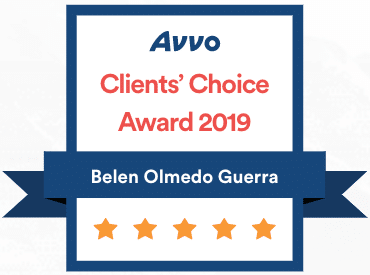In Arizona, juvenile crimes are treated differently than crimes committed by adults. However, this doesn’t minimize the severity of criminal charges for a juvenile in Arizona. The repercussions are just as scary, if not scarier when your child’s future is on the line. So, as a parent, you’re left wondering what to expect in juvenile court. Phoenix juvenile defense attorney Belén Olmedo Guerra is here to explain.
Do I Need a Juvenile Criminal Defense Lawyer in Arizona?
When your child is in legal trouble, you may not know what to expect. You probably know something about the adult criminal court system, which can be scary even for a seasoned defendant. But juvenile crimes are handled less rigidly than those of adults because the goal is not necessarily to punish a child but rather to guide them toward a productive life by providing the support they need to grow and thrive.
Therefore, unless a child commits a crime as serious as homicide, assault, or any other Arizona violent crime that causes bodily harm to another person, the goal is treatment and rehabilitation, not necessarily incarceration, unless a judge deems there is no other option.
As a trusted and caring advocate for juveniles caught in the juvenile court system, attorney Belén Olmedo Guerra dedicates herself to helping your child get the help they need while leading their case to resolution. To help you understand what your child faces when charged with a crime, Belén Law Firm explains the process.
What is the Juvenile Justice Process?
Governed by the Arizona Children’s Code, juvenile courts have their own rules of procedure and have more flexibility to decide the consequences for a child with criminal charges while still mindful of their basic rights.
When a child commits a crime, we generally assume the child lacks the capacity to make responsible choices. Because, as we know, the brain hasn’t fully developed yet. Because of this and other factors out of the child’s control such as neglect or violent, abusive, or unsafe living conditions, the juvenile courts have discretion in responding to and deciding the appropriate course of action. Unless a child is a danger to others, avoiding a juvenile detention center, which could lead to even more negative behavior, may be the best option.
A judge, who often takes into consideration input from juvenile court professionals, social workers, therapists, probation officers, and family members’ appeals, may decide alternatives to detention including:
- Placement with a family member or trusted adult friend, especially if the child can’t be managed at home or if they have been neglected, abused or exposed to unsafe conditions.
- Temporary placement in a therapeutic group home.
- Placement in a mental health facility or other hospital for help with intensive therapeutic intervention or medical care.
- Commitment to the Department of Human Services for placement in a residential or another reform program.
- Anger management and impulse control training.
- Mandatory assigned community service.
- Court ordered acquisition of employment.
- Transfer to a school better designed to meet the child’s needs.
- Probation.
- House arrest.
- Payment of fines and restitution.
- Time to reflect in a juvenile detention center.
What Kind of Cases are Heard in Juvenile Court?
In adult court, a defendant endures a trial or enters a plea before a county, state, or federal court judge and/or jury. From here court either acquits the defendant or finds them guilty. On the other hand, a juvenile will not have a trial. Instead, they go through an “adjudication.” An adjudication hearing occurs solely before a judge. This judge, then decides if the child has committed the crime they’ve been charged with.
In juvenile court, when the state finds the child responsible for what he or she has been accused of, the child receives a “disposition.” At that point, a judge has the discretion to decide the appropriate consequences for the juvenile’s crime. And rather than labeling the child as a convicted criminal, Arizona calls them “delinquents”.
The exception to this process is when a 16- to 17-year-old Arizona juvenile is charged with murder, aggravated criminal sexual assault, armed robbery, or certain other violent crimes or if they’ve compiled a substantial number of juvenile court cases. In these cases, Arizona can most certainly try them as adults.
Phoenix Juvenile Defense Attorney Fights for Your Child’s Rights
Whether you believe your child is innocent or they have acknowledged they’re guilty of a crime, it’s critical that they have a criminal defense attorney experienced in juvenile law to represent them. A child entering a court alone may encounter many unfair conditions. For instance, the State typically punished boys more harshly than girls. Or, because of their socio-economic status, race or ethnicity, they may be discriminated against in the system.
Avoid Court for Juvenile Charges
Without proper representation that mitigates the severity of the disposition of their charges, your child’s future can be irrevocably damaged. How? If the court finds them delinquent for a misdemeanor or felony. Arizona seals the minor’s criminal disposition records from all but police, courts, and prosecutors. But if a juvenile has a felony record, schools, daycare centers, hospitals, security companies can also access the case disposition.
Furthermore, the state of Arizona doesn’t automatically seal all juvenile justice records at 18 years of age. Afterward, they may apply to seal a juvenile record. This can happen six months after the final discharge of the offense and termination of any assigned probation.
If a juvenile wants to pursue higher education, junior colleges and universities may not accept them, once they have a spot on their record. Also, if they do make their way into college, they may have trouble obtaining financial aid from the state. Furthermore, they may face challenges in obtaining employment or rental housing and may face immigration issues. In the worst-case scenario, the court remands your child to a juvenile detention facility. In that case, they could potentially come out worse than they went in.
Therefore, it’s critical for your child, who may have made a serious youthful mistake, to have YOU, as the parent, on their side. That includes hiring a skilled criminal defense attorney who knows the Arizona juvenile system and will be on your child’s side right along with you.
Juvenile Delinquency Court is Intimidating
Practicing attorneys oftentimes overlook the importance of appropriate behavior and providing a compassionate legal ear to families. However, Attorney Belén takes much pride in her ability to slow down. She not only defends minor clients, but she also becomes the calm and trusted voice of reason. It’s difficult to be a strong parent when you, as the parent, are trying not to fall apart yourself. Hiring an attorney who recognizes the importance of this can be invaluable.
Contact Phoenix Juvenile Criminal Defense Attorney, Belen Olmedo Guerra
During a free initial consultation, our attorneys will review your child’s case. From here, Phoenix criminal defense attorney Belén Olmedo Guerra will assess the case and explain the strategies necessary for the best outcome. She’s committed and wants the best future for your child. So, rest assured, we’ll approach their case with passion and dedication. We’re fully committed to helping them get on the right path toward a productive future.
To begin what may be the fight of your child’s life and have all your legal questions answered, contact the Belén Law Firm at (602) 715-0908 to schedule a free, no-obligation consultation for you and your child. Calls are accepted 24/7.




















